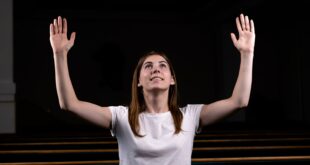What does Hanukkah (also spelled Chanukah) have to do with Christianity? Well, on the surface, nothing.
Now I know what you are thinking: “Why is this article so long if we have already established that these two have nothing to do with each other?” Hold on, do not give up reading yet; first let’s talk a little about Hanukkah and then we will come back to this question.
Hanukkah, “The Festival of Lights,” is a Jewish holiday that is celebrated around this time of year; actually it is going on right now. The story of Hanukkah is recorded in First and Second Maccabees which is contained in the Apocrypha. Unless you have a 1611 edition of the King James Bible, you are not going to find these books inside a Protestant Bible. That is because the material inside of the Apocrypha (which also includes additional chapters to the book of Esther and additional portions to Daniel) is considered to be historic but not divinely inspired by God. Even in Judaism these writings are not a part of their canon.
Obviously the events that are recorded in the story of Hanukkah do not appear in the Old Testament because they had not occurred yet. In the New Testament Hanukkah is mentioned once. John 10:22 says that it was the “Festival of Dedication” and that Christ was in Jerusalem during this period of time. The text does not say specifically that Christ celebrated Hanukkah, but since it was a Jewish holiday it is possibly that He did keep it. Scripture is silent on this issue, and this is not the point of my article.
The point I am trying to reach here is not a forced application of John 10 to make all Christians observe Hanukkah. My family celebrates Hanukkah, but it is not for religious reasons whatsoever. I am not saying that a real Christian would observe this holiday. You do not have to go out and purchase a menorah and dreidels and whip up some potato pancakes. So what does Christianity have to do with Hanukkah then? Let’s check out the story itself to find out.
Antiochus, the King of the Greeks, was Hellenizing the world. He was forcing the Greek lifestyle, religion, philosophy, everything on the people of his kingdom. For the Jews, that was quite the culture shock, and beyond that it was a violation of their religion to change to the customs that the Greeks had. What was the last straw for the Jews, however, was when Antiochus destroyed the temple and violated the altar with improper sacrifices and idols. A man by the name of Matthias and his sons were very zealous for the Law and for God so they decided to take action. Matthias lead a revolution against the Greeks to get the temple back and to give the Jews their freedom to worship their God. Shortly after this revolution began, Matthias died of old age and his son Judas Maccabeus (which means “The Hammer”) took over as leader for this group of rebels.
Judas led many battles against the Greek and their surrounding allies with the motivation to preserve their Law and to preserve the right to worship God. After many battles the Israelites won back the temple. They began rebuilding and purifying the temple. Unfortunately, the menorah (lampstand) which was supposed to stay perpetually lit did not have enough oil to stay lit; they needed eight days to get more oil. Miraculously, the little bit of oil they had lasted all eight days. This is why during Hanukkah, those who celebrate it, light one candle each night for all eight nights. The rest of the story is about Judas and his brothers Jonathan and Simon on their continued campaigns to preserve their freedom to worship God.
God provided both in a large way–protecting Israel as they battled for their freedom, and in a small way–allowing the oil to last all eight days.
This is my point, God is faithful.
We need to be reminded that God is faithful and that He cares for His people. At times, life can get very discouraging, and it begins to get hard to see the good grace of our loving Lord. We have examples all throughout the Scriptures of God’s faithfulness, but where else do you see God at work? What about in history, in the news or in your own life? Where do you see God at work showing His steadfast love for His followers? Although First and Second Maccabees may not be divinely inspired they still record a story of God’s faithfulness.
So no, you do not have to observe Hanukkah, and my point has nothing to do with whether or not the disciples kept the holiday or not. If you are interested in studying cultures or reading history especially on ancient warfare, then by all means get a copy of First and Second Maccabees or find someone who does keep Hanukkah and talk to them about it. But my challenge here to you is to look for God’s faithfulness in your life. In your story where do you see God at work? In the lives of you friends and family, at your church, or even in history, where do you see God at work? You will find strength and encouragement as you see God at work.
Happy Hanukkah!
How is God specifically showing His faithfulness to you today?
 The Bottom Line, Ministries Christian News, Articles, & Poetry
The Bottom Line, Ministries Christian News, Articles, & Poetry 




